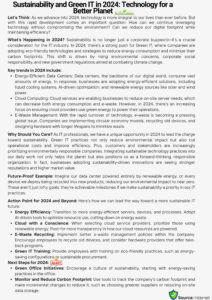
In today’s turbulent business landscape, leadership is not merely about making decisions; it’s about navigating complexities with a blend of self-awareness, empathy, and resilience. Enter mindful leadership, a paradigm that merges mindfulness principles with traditional leadership, fostering authenticity and innovation. Let’s delve into the art of mindful leadership and its transformative potential.
Understanding Mindful Leadership
In an era marked by volatility and uncertainty, traditional leadership approaches often fall short in addressing the multifaceted challenges faced by organizations. Mindful leadership offers a refreshing alternative, emphasizing the cultivation of self-awareness, emotional intelligence, and compassionate communication.
The Foundations of Mindfulness
At its core, mindfulness involves paying deliberate attention to the present moment without judgment. By practicing mindfulness techniques such as meditation, deep breathing, and body awareness, leaders can enhance their ability to remain calm and composed amid chaos, thereby making more thoughtful decisions and fostering a positive work environment.
Integrating Mindfulness into Leadership
Mindful leadership transcends the traditional top-down hierarchical model, emphasizing collaboration, transparency, and empathy. Leaders who embody mindfulness principles are attuned to the needs and concerns of their team members, fostering a culture of psychological safety and trust. By encouraging open dialogue and active listening, mindful leaders create space for creativity, innovation, and collective problem-solving.
Cultivating Resilience
In the face of adversity and setbacks, resilience emerges as a defining trait of effective leaders. Mindful leadership equips individuals with the tools to navigate challenges with grace and resilience, leveraging setbacks as opportunities for growth and learning.
Embracing Vulnerability
Contrary to conventional wisdom, vulnerability is not a sign of weakness but rather a hallmark of authentic leadership. Mindful leaders embrace vulnerability by acknowledging their limitations and mistakes, fostering a culture of psychological safety where team members feel empowered to take risks and learn from failures.
Practicing Self-Compassion
In the pursuit of excellence, leaders often neglect their own well-being, leading to burnout and diminished performance. Mindful leadership emphasizes the importance of self-care and self-compassion, encouraging leaders to prioritize their physical and mental health. By nurturing a sense of compassion for oneself, leaders can replenish their energy reserves and lead with clarity and purpose.
Enhancing Emotional Intelligence
Emotional intelligence (EI) lies at the heart of mindful leadership, enabling leaders to navigate interpersonal dynamics with empathy, authenticity, and resilience.
Developing Empathetic Leadership
Empathy is the cornerstone of effective leadership, enabling leaders to connect with their team members on a deeper level and understand their perspectives and emotions. Mindful leaders cultivate empathy through active listening, nonverbal communication, and perspective-taking, fostering a sense of belonging and inclusivity within the organization.
Regulating Emotions
In high-pressure situations, emotions can run high, clouding judgment and impeding decision-making. Mindful leaders possess the ability to regulate their emotions, responding to challenging situations with equanimity and composure. Through mindfulness practices such as deep breathing and cognitive reframing, leaders can cultivate emotional resilience and maintain focus amidst adversity.
Fostering a Culture of Mindful Leadership
The adoption of mindful leadership is not confined to individual leaders; rather, it extends to the organizational culture as a whole, shaping norms and behaviors that prioritize well-being, collaboration, and innovation.
Leading by Example
Leaders serve as role models for the rest of the organization, embodying the principles of mindfulness and emotional intelligence in their daily interactions and decision-making. By leading by example, leaders inspire trust and authenticity, setting the tone for a culture of mindful leadership.
Cultivating Psychological Safety
In a psychologically safe environment, team members feel empowered to voice their opinions, take risks, and express their authentic selves without fear of judgment or reprisal. Mindful leaders foster psychological safety through open communication, constructive feedback, and a genuine concern for the well-being of their team members.
Conclusion
In conclusion, mindful leadership represents a paradigm shift in the way leaders approach their roles and responsibilities in today’s dynamic business environment. By integrating the principles of mindfulness, resilience, and emotional intelligence, leaders can foster a culture of authenticity, compassion, and innovation that drives organizational success. As we navigate the complexities of the modern workplace, the art of mindful leadership offers a guiding light, empowering leaders to lead with clarity, empathy, and purpose.






